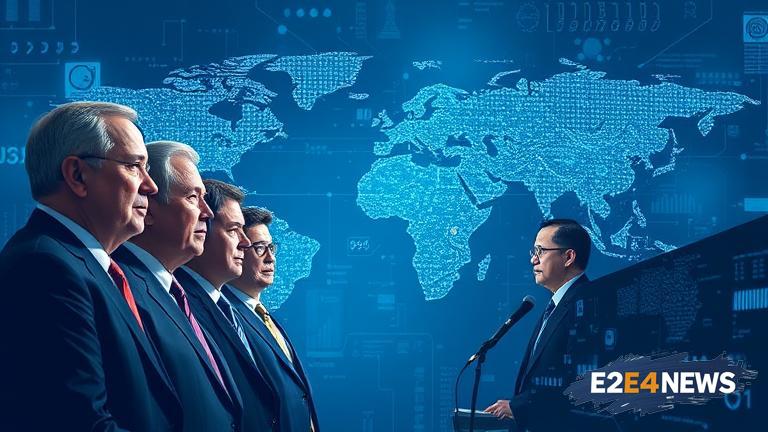The increasing presence of artificial intelligence (AI) in daily life has sparked a global debate about the need for regulation. Recently, a growing number of leaders from around the world have come together to urge a unified approach to AI regulation. This call to action is driven by concerns over the potential risks and consequences of unregulated AI development and deployment. With AI systems becoming more sophisticated and pervasive, the potential for misuse or unintended harm has grown significantly. Experts warn that without proper oversight and guidelines, AI could exacerbate existing social issues such as bias, inequality, and job displacement. Furthermore, the lack of standardization in AI development and deployment could lead to a fragmented and insecure digital landscape. To address these concerns, global leaders are advocating for a collaborative and harmonized approach to AI regulation. This would involve establishing common standards and guidelines for AI development, deployment, and use. Such an approach would not only help mitigate the risks associated with AI but also ensure that its benefits are realized and shared equitably. The benefits of AI are numerous, including improved efficiency, enhanced decision-making, and innovative solutions to complex problems. However, these benefits can only be fully realized if AI is developed and used responsibly. A unified approach to AI regulation would provide a framework for responsible AI development and use, ensuring that AI systems are transparent, explainable, and fair. It would also facilitate international cooperation and knowledge sharing, enabling countries to learn from each other’s experiences and best practices. Moreover, a harmonized approach to AI regulation would help to build trust in AI systems, which is essential for their widespread adoption and acceptance. As AI continues to evolve and improve, it is crucial that regulatory frameworks evolve in tandem. This requires ongoing dialogue and collaboration between governments, industry leaders, and civil society organizations. By working together, we can create a future where AI is developed and used in ways that benefit humanity as a whole. The need for a unified approach to AI regulation is urgent, and global leaders must act swiftly to establish common standards and guidelines. The consequences of inaction could be severe, with the potential for AI to exacerbate existing social and economic problems. On the other hand, a harmonized approach to AI regulation could unlock the full potential of AI, driving innovation, economic growth, and social progress. As the world becomes increasingly dependent on AI, it is essential that we prioritize responsible AI development and use. This requires a global effort, with countries working together to establish a framework for AI regulation that is both effective and adaptable. The development of AI is a global phenomenon, and its regulation must be addressed through a global lens. By adopting a unified approach to AI regulation, we can ensure that AI is developed and used in ways that promote human well-being, dignity, and freedom. Ultimately, the future of AI depends on our ability to work together to establish a regulatory framework that is both robust and flexible. As we move forward, it is crucial that we prioritize transparency, accountability, and inclusivity in AI development and deployment. By doing so, we can create a future where AI enhances human life without compromising our values and principles.
